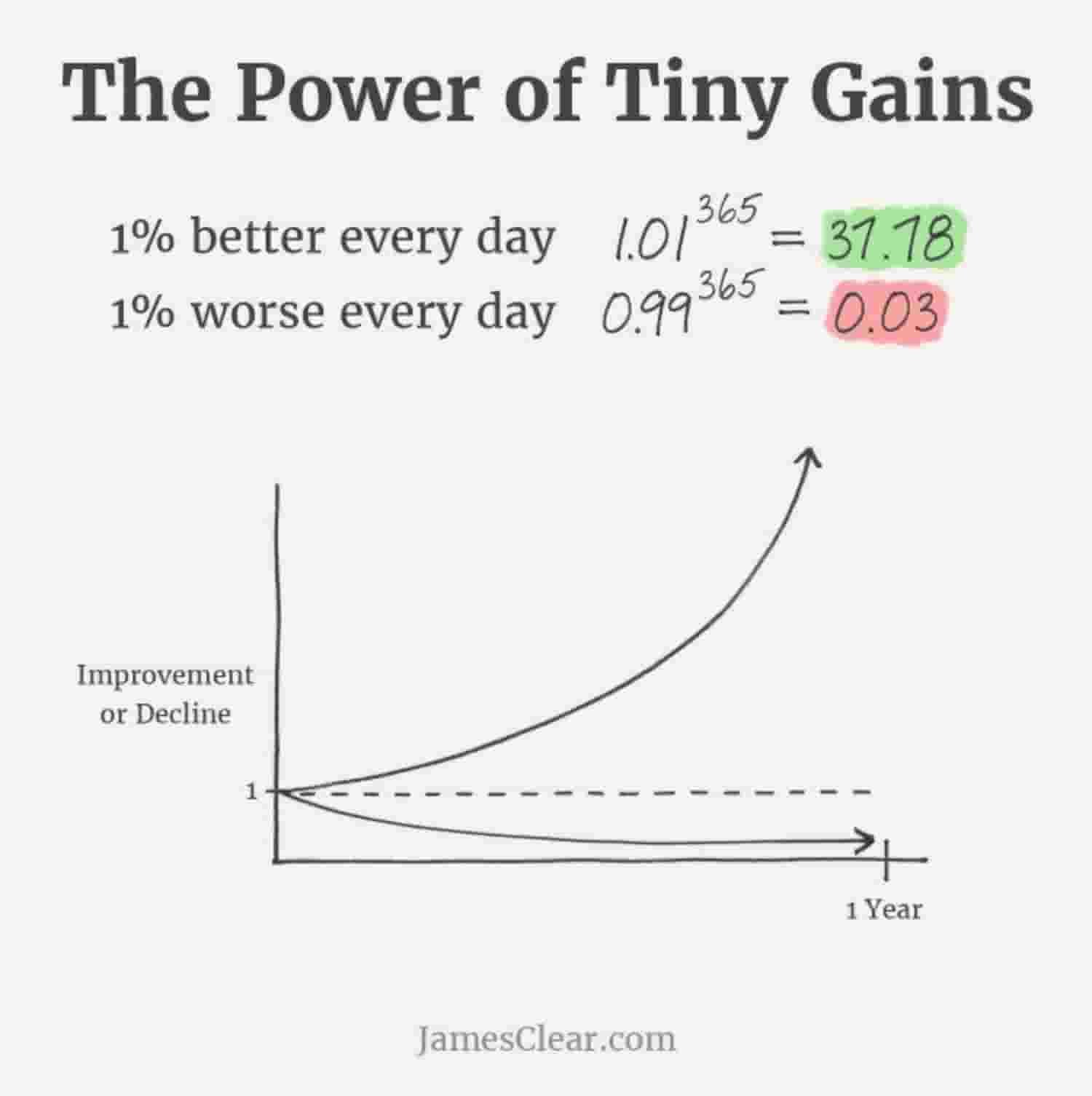The Most Powerful Force You Can Harness: Slow, Incremental, Constant Progress
“You want to win a gold medal in the Olympics. You want to learn a musical instrument. You want to learn a foreign language. You want to build Berkshire Hathaway. What’s the formula? Dogged incremental constant progress over a very long time frame.”
The small things that you do consistently matter more than the large things you do sporadically.
This is because consistency allows you to capture the awesome power of compounding - where small gains compound on each other to create massive change over time.
From the history of the inorganic universe to the last 20,000 of human history, the power of small, incremental constant progress can be felt everywhere. And it’s the secret to your success.
Peter Kaufman’s Mental Models
Peter Kaufman has worked alongside Charlie Munger for decades. In 2005, he edited and published Poor Charlie's Almanack: The Wit and Wisdom of Charles T. Munger - one of the most important books I’ve ever read.
In a speech in 2005, called, The Multidisciplinary Approach To Thinking Kaufman breaks down in simple fashion the mental models that have made him, Munger, and Warren Buffett so successful.
These mental models help you understand how the world works in the simplest terms. And as the Austrian philosopher, Ludwig Wittgenstein says, “To understand is to know what to do.” When you know what to do, success follows.
Kaufman, taking a multidisciplinary approach, wants his mental models to come from the largest possible data sets to avoid errors. So, he derives them from three huge buckets:
The inorganic universe (13.7 billion years)
Biology on earth (3.5 billion years)
Human history (20,000 years)
“[Bucket] number one is 13.7 billion years… It’s the inorganic universe. Physics. Geology. Anything that’s not living goes in my bucket number one...Bucket number two is 3.5 billion years. It’s biology on the planet Earth… And number three is 20,000 years of recorded human history. That’s the most relevant of all. That’s our story. That’s who we are.”
Two models happen to be found in all three buckets: mirrored reciprocation, and dogged, incremental constant progress over a very long time period.
Mirrored Reciprocation
The first mental model he explores is called mirrored reciprocation. This is the simple idea that you get back exactly what you put out into the world.
Newton’s Third Law of Motion states that “For every action, there is an equal and opposite reaction.” Here’s Kaufman explaining the significance of this rule:
“If I put this bottle of water on this table, Newton’s Third Law of Motion says that if the bottle pushes down on the table with ‘force x’, and it also strangely says that the table pushes back with equal ‘force x’. That’s very strange. But you know how long that’s been true? 13.7 billion years that’s been true… It’s perfectly mirrored reciprocation… Everything in the inorganic universe works that way.”
The same is true in bucket number two. If you’re mean to a dog, it bites you. If you love it and give it treats, it loves you. If you smile at someone, they smile back. If you punch them in the face, they’ll probably punch you back.
As Kaufman says,
“Every interaction you have with another human being is merely mirrored reciprocation… Now you’re going to say to yourself ‘This is too simple. It can’t be this simple…’ We looked into the three largest sample sizes that exist, the three most relevant, and they all said exactly the same thing. Do you think we can bank on that? 100 percent we can bank on that.”
This is a simple model, but a powerful one. To capture it, put out what it is you want to get back from the world. Over the long term, you’ll get what you deserve.
Slow, incremental constant progress
The second mental model is one that Kaufman argues is the strongest force you could harness to meet your life’s goals and find success. He calls it dogged, incremental constant progress over a very long time period.
Here’s his proof:
Compound interest - what Albert Einstein called the most powerful force in the universe and the 8th wonder of the world - is nothing more than dogged incremental constant progress over a very long time frame.
The physical world was molded by water, wind, and ice with dogged, incremental constant progress over a very long time.
And evolution is dogged, incremental constant progress over a very long time, producing a tremendous variety of lifeforms from single-cell amoeba to sea turtles, to dinosaurs.
“You want to win a gold medal in the Olympics. You want to learn a musical instrument. You want to learn a foreign language. You want to build Berkshire Hathaway. What’s the formula? Dogged incremental constant progress over a very long time frame…
Nobody wants to be constant. We’re the functional equivalent of Sisyphus pushing his boulder up the mountain. You push it up halfway, and you go, ‘Aw, I’ll come back and do this another time.’ This is the human condition. Whenever you interrupt the constant increase above a certain level of threshold you lose compounding… You have to be constant.
How many people do you know that are constant at what they do? I know a couple. Warren Buffett and Charlie Munger. Everybody wants to be rich like Warren Buffett, Charlie Munger. I’m telling you how they got rich. They were constant. They were not intermittent.”
Kaufman’s explanation translates into words the feeling I get when I am tired and frustrated from a day of effort with very little progress, but something deep inside me - call it my soul - knows that the day was not wasted.
Progress was made, even if I can’t see it. And this is supported with 13 billion years of physical evidence and 3.5 billion years of biological evidence.
The Secret To Success Is Consistency, Not Intensity.
Incremental, constant improvements make a huge difference over the course of your life.
If you give yourself the goal of getting just 1% wiser every day - you’re smarter when you go to bed than you were when you woke up - what does that look like over a full year?
Writer James Clear has the answer, and it’s astounding:
Photo from JamesClear.com
You are a whopping 37 times better at the end of the year than when you started. This is why being a life-long learner is such an advantage. Imagine doing this year after year for decades.
Consistency is the key to capturing the power of slow, incremental constant progress. Here’s Clear again in a tweet:
“Most people need consistency more than they need intensity. Intensity:
run a marathon
write a book in 30 days
silent meditation retreat
Consistency:
don't miss a workout for 2 years
write every week
daily silence
Intensity makes a good story. Consistency makes progress.”
The small things you do consistently matter more than the large things you do sporadically because they compound over time. That’s the power of dogged, incremental constant progress over a very long time period.
So stick with it. If you’re building a skill, don’t stop. If you’re compounding your money, don’t stop. Every great achievement is on the other side constant progress.
Keep going.
If You Want More Ideas Like This, Follow Me On Twitter And Subscribe To My Newsletter.
SOURCES
Peter Kaufman on The Multidisciplinary Approach to Thinking: Transcript, By Richard Lewis





